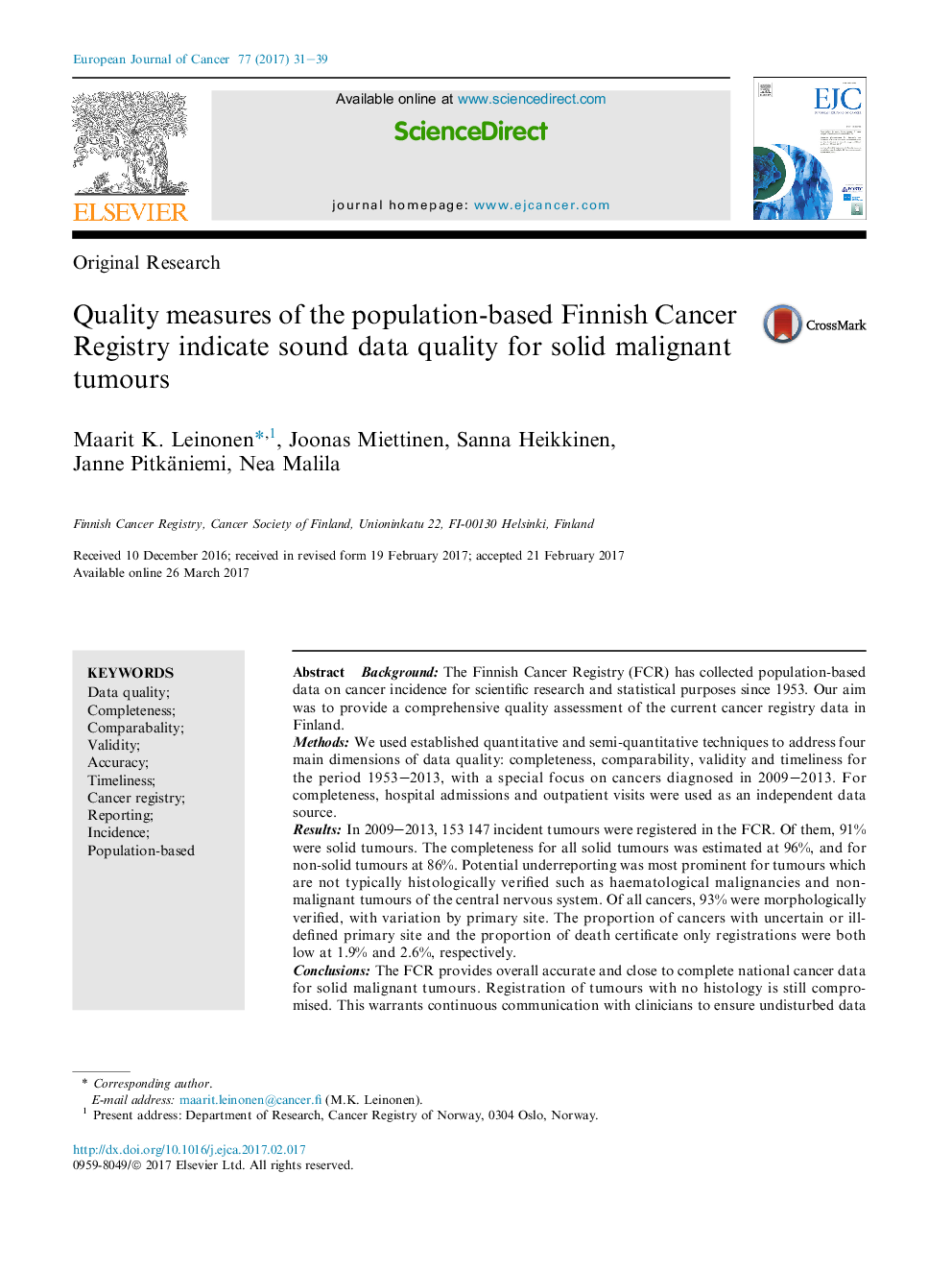| Article ID | Journal | Published Year | Pages | File Type |
|---|---|---|---|---|
| 5526624 | European Journal of Cancer | 2017 | 9 Pages |
â¢Complete and unselected cancer data provide sound evidence about public health.â¢External data sources have substantial contribution to completeness of cancer data.â¢Incomplete clinical data introduce bias to site-specific incidence and survival estimates.â¢International comparisons are sensitive for variations in data collection and quality.
BackgroundThe Finnish Cancer Registry (FCR) has collected population-based data on cancer incidence for scientific research and statistical purposes since 1953. Our aim was to provide a comprehensive quality assessment of the current cancer registry data in Finland.MethodsWe used established quantitative and semi-quantitative techniques to address four main dimensions of data quality: completeness, comparability, validity and timeliness for the period 1953-2013, with a special focus on cancers diagnosed in 2009-2013. For completeness, hospital admissions and outpatient visits were used as an independent data source.ResultsIn 2009-2013, 153Â 147 incident tumours were registered in the FCR. Of them, 91% were solid tumours. The completeness for all solid tumours was estimated at 96%, and for non-solid tumours at 86%. Potential underreporting was most prominent for tumours which are not typically histologically verified such as haematological malignancies and non-malignant tumours of the central nervous system. Of all cancers, 93% were morphologically verified, with variation by primary site. The proportion of cancers with uncertain or ill-defined primary site and the proportion of death certificate only registrations were both low at 1.9% and 2.6%, respectively.ConclusionsThe FCR provides overall accurate and close to complete national cancer data for solid malignant tumours. Registration of tumours with no histology is still compromised. This warrants continuous communication with clinicians to ensure undisturbed data flow, and active trace-back using external data sources such as hospital administrative data. In addition, broad diagnosis categories would be less sensitive to diversity of input and data quality when international comparisons are made.
